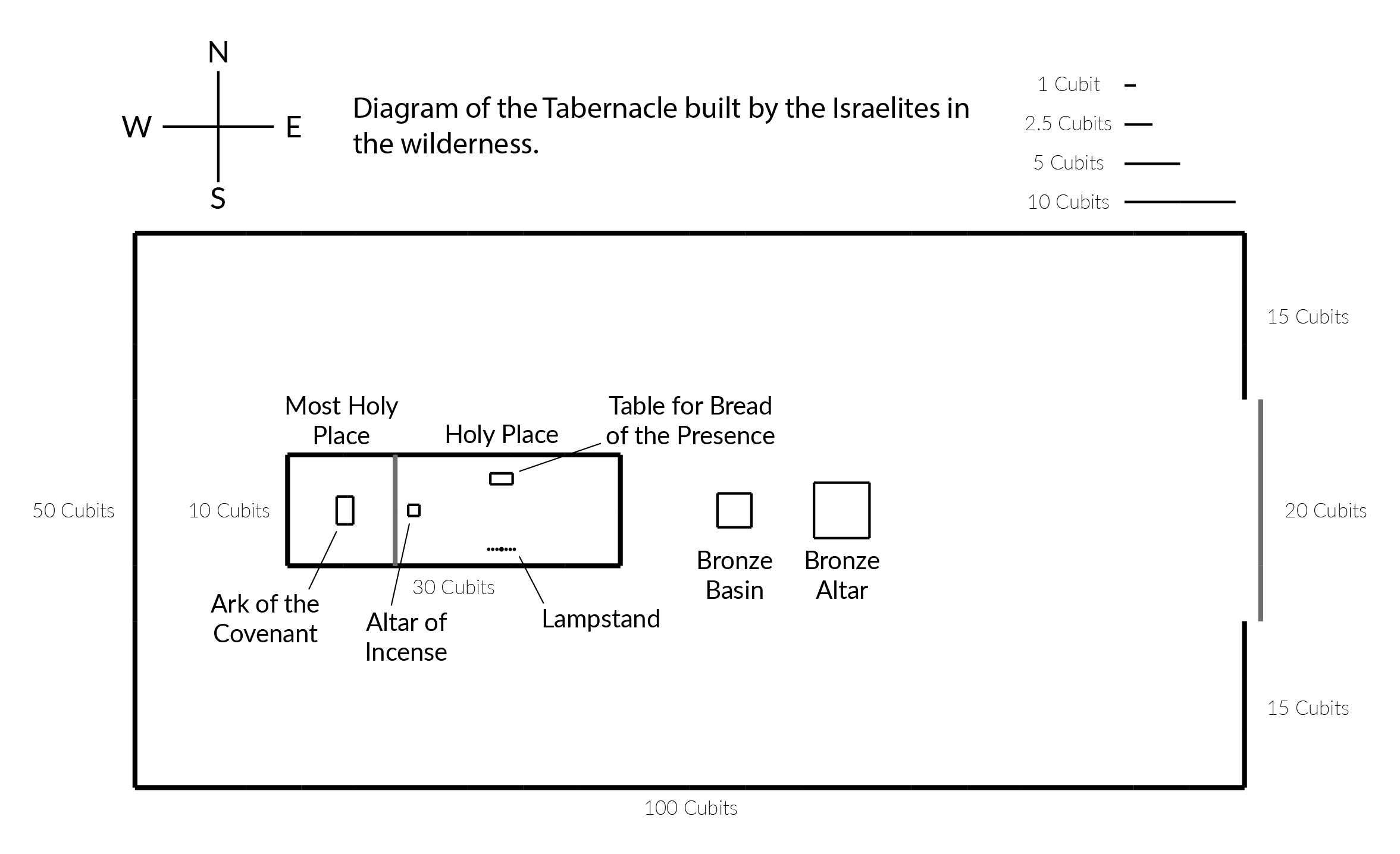Leviticus 5 Summary: A Short Breakdown in 5 Minutes
Leviticus 5 Summary - A Quick Overview
WHEN:
Leviticus picks up where Exodus left off. The children of Israel are on their way through the wilderness to the Canaan land.
According to Leviticus 8, the Tabernacle had already been erected, which would place the year at approximately 1490 B.C. (one year after the Israelites left Egypt).
DEFINITIONS:
Ephah – An ephah was equivalent to approximately 22 liters (5.8 gallons).
Ram – A Ram is a male sheep. A female sheep is ewe.
TABERNACLE DIAGRAM
OUTLINE:
SIN OFFERINGS AND OPTIONS FOR THE POOR (5:1-13):
If an Israelite sinned by not testifying to a crime he witnessed, unknowingly touching something unclean, or by speaking a rash or reckless oath, when he realized his guilt, he was to bring a female goat or lamb to the priests as a sin offering.
If the man couldn’t afford a lamb or a goat, he was to being two turtledoves or two pigeons, one for a sin offering and another for a burnt offering.
The priest was to wring off the head of the first bird, put some of it’s blood on the altar, drain the rest of it’s blood at the base of the altar, and offer it as a sin offering.
The second bird was to be offered as a burnt offering.
If the man couldn’t afford two turtle doves or two pigeons, he was to bring a tenth of an ephah (2.2 liters) of fine flour for his sin offering.
It was not to include oil or frankincense because it was a sin offering.
The priest was to sacrifice a handful of the flour on the altar.
The remainder of the flour was kept by the priest.
LAWS FOR GUILT OFFERINGS (5:14-19):
If a man committed “a breach of faith” and sinned unintentionally in any of “the holy things of the Lord,” he was to bring a ram to the Tabernacle as a guilt offering.
He was also to make restitution for his mistake and add a fifth to the total.
The priest would make atonement for him, and he would be forgiven.
APPLICATION:
God has always cared less about the substance of our sacrifices and more about the heart of the one offering the sacrifice.
An Israelite who brought flour for a sin offering was just as forgiven by God as one who offered a lamb.
We see this principle in the story of the widow who offered two small copper coins to God (Mark 12:41-44).
Jesus did not care about the monetary value of her offering, He cared about the heart behind the offering.
“Truly, I say to you, this poor widow has put in more than all those who are contributing to the offering box. For they all contributed out of their abundance, but she out of her poverty has put in everything she had, all she had to live on” (Mark 12:43-44).
God is pleased with you when your heart belongs to Him.
Those who contribute the least may be the closest to God and those who contribute the most, monetarily speaking, may be the farthest from Him.
Let’s never judge people when they drop coins in the collection tray. The clang of those coins may be a sweet sound to God.


